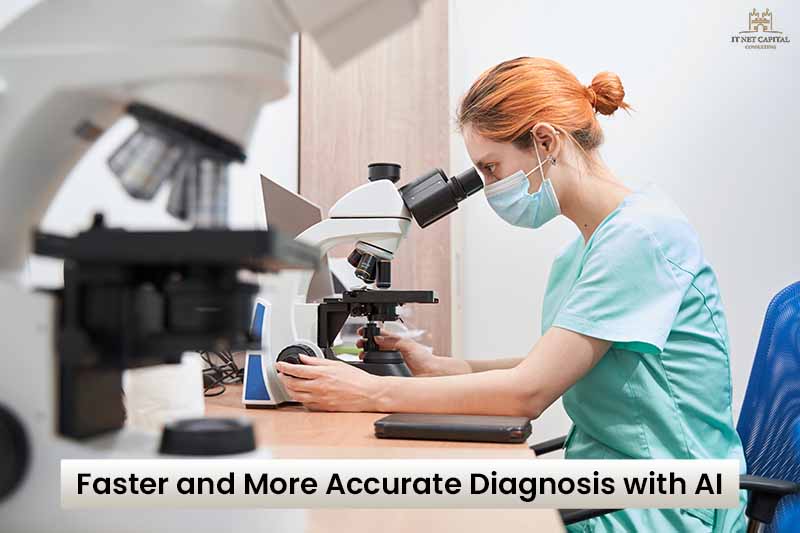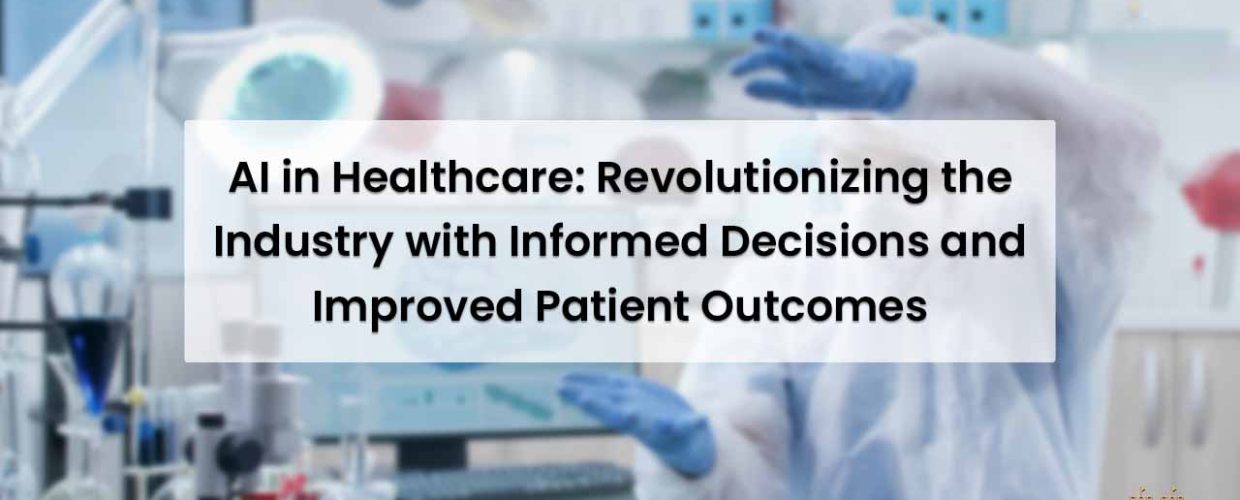Did you know that the integration of AI in the healthcare industry is revolutionizing the way doctors make diagnoses and improve patient outcomes? That’s right, with the advancements in artificial intelligence and machine learning, doctors now have access to vast amounts of data and insights that were once difficult or even impossible to obtain.
But that’s not all. Did you know that AI algorithms are capable of processing more medical data in a single day than a human doctor could in a lifetime? Or that AI is helping to improve access to care for patients in remote or underserved areas by providing fast and accurate diagnoses without the need for travel?
These are just a few examples of the amazing impact that AI is having on the healthcare industry, and in this article, we will dive deeper into the topic, exploring how AI is revolutionizing healthcare and improving patient outcomes. From faster and more accurate diagnoses to personalized care plans and even automating repetitive tasks, the integration of AI in healthcare is leading to a better future for patients everywhere.
So if you’re interested in learning more about the exciting connection between AI and healthcare, keep reading. The future of healthcare is here, and it’s powered by artificial intelligence.
Table of Contents
AI in Healthcare Revolutionizing the Industry
The healthcare industry is undergoing a revolution with the advancements in artificial intelligence (AI) and machine learning. The integration of AI in healthcare is enabling doctors to make more informed decisions and improve patient outcomes, making a significant impact on the industry. In 2023, AI in healthcare is set to become even more important as the technology continues to mature and evolve, offering new and innovative solutions for the healthcare sector.
Improving Patient Outcomes with AI and Machine Learning
AI in healthcare is helping to improve patient outcomes by providing doctors with insights and information that would otherwise be difficult or impossible to obtain. For example, AI algorithms can analyze large amounts of medical data, identifying patterns and relationships between variables that are not immediately obvious to the human eye. This can lead to earlier diagnoses, more effective treatments, and improved patient outcomes.
Faster and More Accurate Diagnosis with AI
Another area where AI is making a significant impact in healthcare is in the diagnosis of complex medical conditions. AI algorithms can process vast amounts of data, including images, videos, and medical records, to identify symptoms and make a diagnosis more accurately and efficiently than a human doctor could. This not only speeds up the diagnosis process but also helps to ensure that patients receive the right treatment, leading to better outcomes and improved health.

Making Informed Decisions with AI
One of the key benefits of AI in healthcare is that it enables doctors to make more informed decisions. AI algorithms can process vast amounts of data, including medical records, lab results, and imaging studies, to provide doctors with a comprehensive view of a patient’s health. This information can help doctors to identify potential problems and make better-informed decisions about the best course of action for their patients.
Personalized Care with AI
AI in healthcare is also helping to improve patient outcomes by enabling doctors to provide more personalized care. AI algorithms can analyze individual patient data to identify specific health needs, and then use this information to create personalized treatment plans. This leads to more effective treatments, improved outcomes, and increased patient satisfaction.
Automating Repetitive Tasks with AI
Another important aspect of AI in healthcare is its ability to automate repetitive tasks, freeing up doctors’ time to focus on more complex and pressing medical issues. For example, AI algorithms can be used to process and analyze medical images, freeing up radiologists to focus on interpreting the results and making diagnoses. This can help to improve patient outcomes by ensuring that diagnoses are made quickly and accurately.
Both radiomics and deep learning are most commonly found in oncology-oriented image analysis. Their combination appears to promise greater accuracy in diagnosis than the previous generation of automated tools for image analysis, known as computer-aided detection or CAD.
Prof Thomas Davenport – The potential for artificial intelligence in healthcare
Improving Access to Care with AI
The integration of AI in healthcare is also helping to improve access to care for patients in remote or underserved areas. AI algorithms can be used to diagnose patients remotely, providing fast and accurate results without the need for patients to travel long distances to see a doctor. This can help to improve patient outcomes by ensuring that patients receive the right treatment quickly and effectively.
The Future of AI in Healthcare: 2023 and Beyond
In conclusion, the integration of AI in healthcare is revolutionizing the industry, enabling doctors to make more informed decisions and improve patient outcomes. As the technology continues to mature and evolve, AI in healthcare is set to become even more important in 2023, offering new and innovative solutions for the healthcare sector. The integration of AI in healthcare is not only improving patient outcomes but also making healthcare more efficient and cost-effective, making it a crucial investment for companies working in the healthcare or AI industries.
